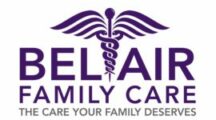A chronic condition is a health condition that lasts for three months or longer. Living with a chronic condition can be difficult and often requires the patient to seek professional health care services. It also requires them to give themselves the proper care they need every day for continuing good health. Ongoing chronic care is essential to the overall good health of anyone diagnosed with a chronic care condition. Proper care can also prevent the patient from getting any potential complications that can often arise when diagnosed with certain chronic conditions.
According to the World Health Organization’s global report on chronic conditions, health care systems around the world need to reorganize the way they provide health care in order to meet the rising burden of chronic conditions. We’ve reorganized our services in order to provide the exceptional care everyone deserves when diagnosed with one or more the following chronic conditions:
- ADHD
- Diabetes
- Hypertension
- High Cholesterol
- Thyroid Problems
- Skin Care
- Asthma
- COPD
- Psychiatric Care
- Geriatric Care
Coping with a chronic illness
Proper care of a chronic illness includes learning how to cope with the additional health issues that being diagnosed with a chronic illness can bring. Whether these issues are minor or major, living with a chronic illness can be very difficult for some, making it necessary for them to seek the support they need to get through these difficult times.
ADHD
ADHD stands for attention deficit hyperactivity disorder and is a chronic condition that causes those diagnosed to often feel restless and compulsive, making it difficult for them to focus.
- ADHD symptoms include being impulsive, being disorganized, having trouble multitasking, having trouble coping with stress and frequent mood swings.
- ADHD treatment options include using various types of therapy. A medical professional will need to evaluate the patient in order to recommend the best treatment option for their particular situation.
Diabetes
Diabetes is a chronic condition in which the body does not produce enough insulin and/or is not able to use its own blood sugar. Having diabetes can lead to additional health complications, i.e. kidney disease, heart disease.
- Diabetes symptoms include excessive thirst, frequent urination, feeling nauseous, extreme fatigue, and unexplained weight loss.
- Diabetes treatment options include living a healthy lifestyle (nutritional food and regular exercise) and insulin injections.
Hypertension
Hypertension, aka high blood pressure, is a common chronic condition that can cause serious health conditions. When blood is forced against the artery walls for a long period of time, this ongoing pressure can lead to one having a stroke and/or heart disease.
- Hypertension symptoms may include headaches, nosebleeds and a shortness of breath, if any at all, as most people who have high blood pressure do not experience any symptoms.
- Hypertension treatment options include living a healthy lifestyle and taking prescribed medication.
High Cholesterol
High cholesterol is a chronic condition that happens when the body has too many lipid fats, aka the bad fats. These bad fats can clog arteries, leading to heart disease.
- High cholesterol has no symptoms. A blood test is required to check for high cholesterol.
- High cholesterol treatment options include living a healthy lifestyle, which includes eating high-nutrition foods, exercising often, avoiding alcohol, and avoiding smoking.
Thyroid Problems
Thyroid problems can range from very small to life-threatening, making this common chronic condition one that requires regular medical care in order to properly manage.
- Thyroid problems include Hypothyroidism and Hyperthyroidism.
- Hypothyroid symptoms include weight gain, hair loss, fatigue, skin and nail abnormalities.
- Hypothyroid treatment generally includes prescribed medications and making positive lifestyle changes.
- Hyperthyroid symptoms include weight loss, muscle weakness, trouble sleeping, anxiety, irritability, restlessness, brittle hair and nails, and thin skin.
- Hyperthyroid treatment options include prescribed medications and surgery, as well as making positive lifestyle changes.
Skin Care
Skin care is a large focus for those who have chronic skin problems, i.e. eczema, psoriasis, acne, rosacea. When someone has chronic skin care problems it can significantly reduce their quality of life making proper skin care a must for those suffering from skin problems.
- Skin symptoms include extremely dry skin, rashes, peeling skin, rough skin and painful or itchy skin.
- Skin care treatment options include using a variety of skin creams, as well as medications that can help keep skin problems under control.
Asthma
Asthma is a common chronic condition that affects the lungs, making it difficult, for those diagnosed, to breath.
- Asthma symptoms include coughing, wheezing, feeling out of breath, chest tightness, and an overall feeling of not being able to take a deep breath.
- Asthma treatment options include recognizing triggers as to avoid them and taking prescribed medications.
COPD
COPD stands for chronic obstructive pulmonary disease and is a chronic condition that makes it hard to breathe. Those diagnosed have both emphysema and chronic bronchitis.
- COPD symptoms include wheezing, shortness of breath, extreme fatigue, swelling, unwanted weight loss, and frequent respiratory-related infections.
- COPD treatment options include stopping smoking, taking prescribed medications, lung therapies, and surgery.
Psychiatric Care
Psychiatric care services for those who think they may have or have already been diagnosed with a mental illness is essential to their overall good mental health. Mental illness is a serious condition that often requires chronic care as it tends to be long-term. Psychiatric care services are an important part of a mental illness treatment plan and can help make chronic care management a much easier process.
Geriatric Care
Geriatric care services offer elderly patients the opportunity to manage any chronic health problems they may be currently experiencing. Proper geriatric health care is essential to improving the overall quality of life of seniors, who often need advice when it comes to effectively managing any and all chronic conditions they may have at this later stage in life.






